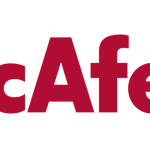- Industry: Software
- Number of terms: 9143
- Number of blossaries: 1
- Company Profile:
Installing a software package onto a computer without the need for user intervention.
Industry:Internet
An activity record of anti-virus software. Log files record actions during installation, scanning, and updating.
Industry:Internet
A malicious program that pretends to be a benign application. It does not replicate but causes damage or compromises the security of your computer. Typically, an individual emails a Trojan horse to you; it does not email itself. You can also download a Trojan from a website or via peer-to-peer networking. Trojans are not considered viruses because they do not replicate.
Industry:Internet
A compressed file that can contain multiple files. ZIP files are used to send multiple files without the associated disk space and download time issues. ZIP files can contain viruses, so you should make sure your anti-virus program scans for viruses in archive files.
Industry:Internet
This technique detects and removes multiple threats using a single virus signature definition, which can identify all threats in the same variant family.
Industry:Internet
A multiuser chat system where people meet on channels, such as virtual rooms with a certain topic of conversation, to talk in groups or privately. IRC enables participants to distribute executable content. Many worms and Trojans utilize IRC as a communications channel to return data to the original malware author, who can then instruct the worm or virus to cause a DDoS or infect other machines.
Industry:Internet
A strong-type program that for encrypting data files and/or email messages on computers. PGP includes authentication to verify the sender of a message and non-repudiation to prevent the sender from denying they sent the message.
Industry:Internet
The process of scanning everything in a folder, including subfolders.
Industry:Internet
This evaluation calculates the likelihood and impact of a successful attack on an organization’s data and assets. McAfee Labs estimates risk for vulnerabilities and threats based on the expected effect on the Internet community.
Industry:Internet
New technology file system is the default formatting system for disk drives used by Windows NT, Windows 2000, Windows XP, and Windows 2003. Microsoft has updated the NTFS specification to handle larger hard disks and spanned drive support.
Industry:Internet
